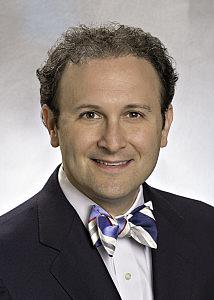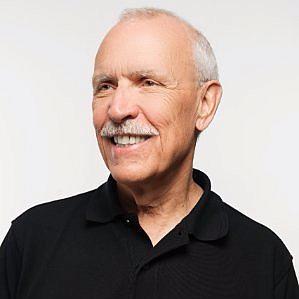Runaway Train: America’s Drug Price Problem
The 24-year-old Oakland law student forced to raid his student loans to pay for blood cancer drugs before dropping out with a pile of debt. The mother of two who faced a $1,000 bill to treat her family for pinworms using a decades-old treatment. There are stories like these in every community, and this webinar will give you the tools you need to bring home the issue of high drug prices and their impact on families, local health care systems, health plans and the economy. The U.S. spends an average of $1,443 a person annually on prescription drugs, twice the average of other developed countries. From the leukemia drug that costs $475,000 per treatment to the Hepatitis C cure that debuted at $1,000 a pill, sky-high drug prices drive up premiums and pose big financial burdens on employers and taxpayers in every community. This webinar will cover recent trends in drug prices, outline leading policy ideas for addressing the crisis, and share reporting tips for bringing the story alive for your audience.
Webinars are free and made possible by the National Institute for Health Care Management Foundation.
Panelists

Aaron S. Kesselheim, MD, JD, MPH, is an associate professor of medicine at Harvard Medical School and a faculty member in the Division of Pharmacoepidemiology and Pharmacoeconomics at Brigham and Women’s Hospital. His research focuses on the effects of intellectual property laws and regulatory policies on pharmaceutical development, the drug approval process, and the costs and availability of prescription drugs. In 2012, he was named to the Perspectives Advisory Board of the New England Journal of Medicine. He has testified before Congress on pharmaceutical policy, medical device regulation, and modernizing clinical trials, and has served as a consultant for the NIH, FDA, Institute of Medicine, USPTO, and state government offices. Kesselheim is a member of the New York State Bar and is a patent attorney. A graduate of Harvard College, he received his postgraduate training at the University of Pennsylvania School of Medicine and Law School, and most recently at the Harvard School of Public Health.

Katie Thomas is a staff writer at the New York Times covering the business of health care, with a focus on the pharmaceutical industry. In 2017, she collaborated with Charles Ornstein of ProPublica on a series of stories that examined the issue of rising drug prices, with an emphasis on how high costs have affected ordinary Americans. Since beginning the health care beat in 2012, Thomas has covered a range of topics, from the persistent generic drug shortage in the United States to nursing home quality to the rollout of the Affordable Care Act. Thomas joined the New York Times in 2008 as a reporter in the sports section. Her assignments took her to the Beijing and Vancouver Olympics, and behind the scenes of unusual sports like biathlon and donkey basketball. She also wrote a series of stories about the gender gap in high school and college sports. Prior to the New York Times, Thomas was a reporter at Newsday, the Long Island tabloid, where she covered major news events that included the terrorist attacks of September 11 and Hurricane Katrina. She is the author of the book Waters Dark and Deep, about one family's separation and reunification in that storm. Thomas is a graduate of New York University with undergraduate degrees in journalism and anthropology.

David Mitchell is the founder of the nonprofit Patients for Affordable Drugs. He has an incurable — but treatable— blood cancer called multiple myeloma, diagnosed in 2010. Mitchell, 67, relapsed in 2014. He depends on drugs for his survival, and expects to be in continuous treatment until he dies. Mitchell is a strong supporter of innovation and new drugs to extend his life, and the lives of other patients. But he says drugs don’t work if people can’t afford them. Mitchell has 40 years of experience working on health care and public health policy as a communications specialist. He has worked to reduce teen smoking, increase use of seat belts, reduce drunk driving and improve child health and safety. For three decades, he helped build and run GMMB, a public policy communications firm in Washington, DC. He retired in 2016 to focus his full energy and attention on helping bring about policy change to lower drug costs.
Dr. Aaron Kesselheim: "Runaway Train: America’s Drug Price Problem"
Katie Thomas: "Runaway Train: America’s Drug Price Problem"
David Mitchell: "Runaway Train: America’s Drug Price Problem"
Suggested reading & resources
- “The Price They Pay,” by Katie Thomas and Charlie Ornstein
- “Fed Up With Drug Companies, Hospitals Decide to Start Their Own,” by Katie Thomas and Reed Abelson, The New York Times
- “Patients Eagerly Awaited a Generic Drug. Then They Saw the Price.” By Katie Thomas, The New York Times
- “Nonprofit generic drug venture could include third of hospital market,” by Sarah Karlin-Smith, Politico
- “Mother, wife, million-dollar patient: Why drug companies see rare-disease patients as human jackpots,” by Carolyn Y. Johnson, The Washington Post
- “Trump made high drug prices his issue. Democrats think they can take it back.” By Erica Werner and Carolyn Y. Johnson, The Washington Post
- “How A Drug Company Under Pressure For High Prices Ratchets Up Political Activity,” by Jay Hancock and Elizabeth Lucas, Kaiser Health News
- “Why does the U.S. spend so much more on healthcare? It's the prices,” by Harris Meyer, Modern Healthcare
- “Drug Pricing Proposal Should Revamp Medicare, GOP Experts Say,” by Lauren Clason, Roll Call
- “Drug firms challenge Maryland price-gouging law,” by Erin Cox, The Baltimore Sun
- “In lawsuit, Big Pharma argues Nevada law creates ‘effective cap’ on insulin prices,” by Megan Messerly, The Nevada Independent
- “Policy Prescriptions for High Drug Costs: Experts Weigh In,” by Shawn Bishop, The Commonwealth Fund
- “Price of insulin prescription doubled between 2012 and 2016,” by Amanda Frost and John Hargraves, Health Care Cost Institute
- “Promoting Competition To Address Pharmaceutical Prices,” by Jonathan Darrow and Aaron S. Kesselheim, Health Affairs
- “The High Cost of Prescription Drugs in the United States: Origins and Prospects for Reform,” by Dr. Aaron S. Kesselheim et al., 2016
- “Value-Based Pricing for Drugs: Themes and Variations,” by Anna Kaltenboeck and Peter B. Bach, JAMA, April 2018
- “Health Care Spending in the United States and Other High-Income Countries,” by Dr. Ashish Jha et al., JAMA, 2018
- “Price trajectory of individual cancer drugs following launch,” by Noa Gordon et al., Journal of Clinical Oncology 34, May 20, 2016
- The Drug Pricing Lab at Memorial Sloan Kettering
